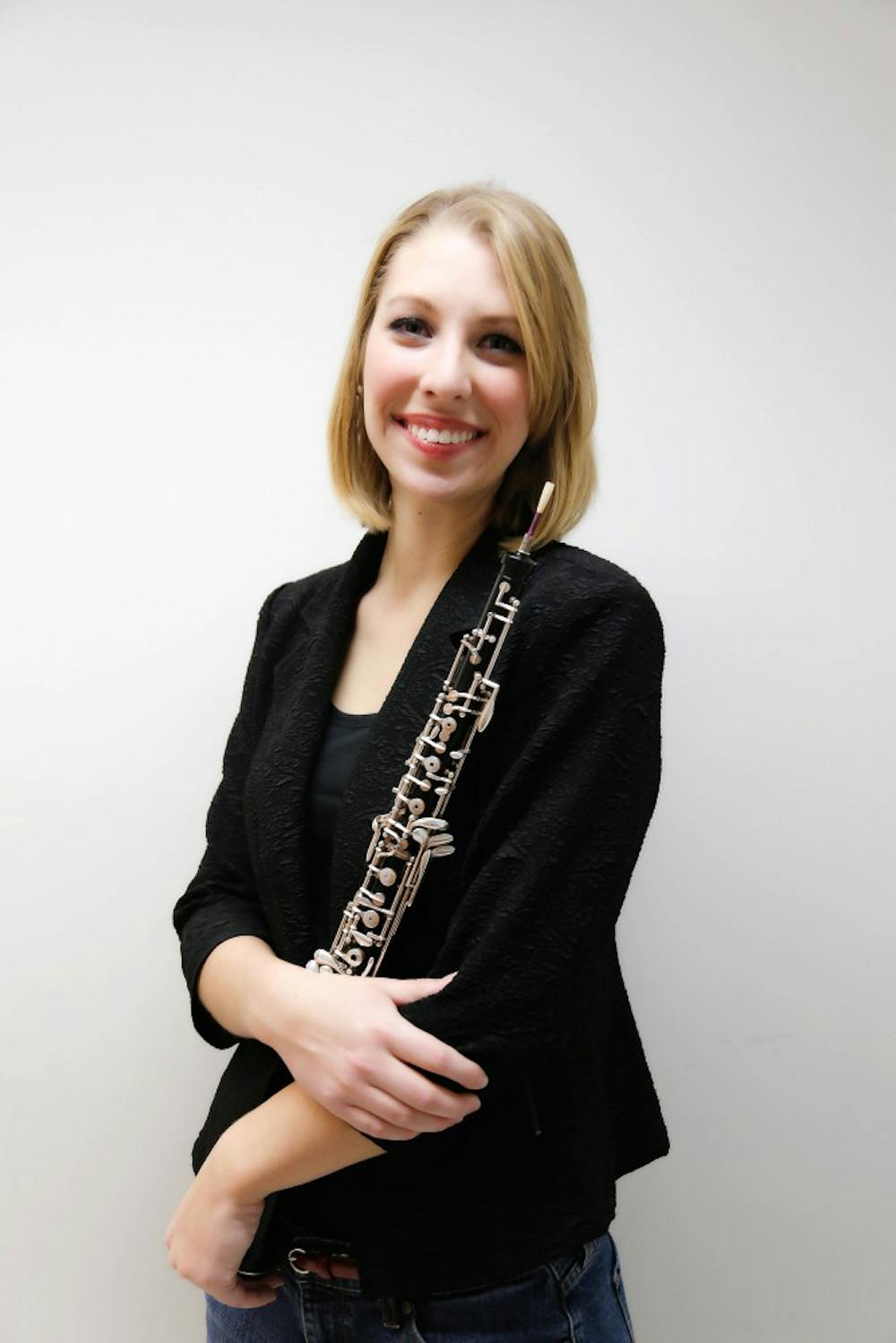Triple major musician sees relationship between art and science
Despite her motivation to take on three majors, Kelsey Mankel said her biggest challenge is mastering the oboe.
“The oboe is a tricky instrument, because you can’t have expectations about it," she said. "Dynamics, quality, shape, material and even weather deeply influence its sound.”
While playing the oboe in symphonic ensemble and other music groups, Mankel also pursues a major in psychology, neuroscience and music.
“They all involve the brain in its different parts and shades," she said. "But also because I wanted to do it because I seek opportunities and do not waste them."
Psychology focuses on mental behavior, Mankel said, while neuroscience considers the brain’s scientific facts, and music is a creative wonder that is originated from the inside of our skull.
“I want to have a well-rounded perspective of brain,” Mankel said.
She said both music and neuroscience have interchangeable skills that help her to succeed in different fields. For example, both of the subjects need extreme precision measurement — a bad experiment or performance are always related to lack of accuracy.
Mankel said it’s very difficult to perform flawlessly in front of a live audience. Music helped her to accept disappointment in scientific research, because it’s a dimension in which failure is more present than success.
“Real failure doesn’t exist," she said. "You can make mistakes, but they motivate you to strive for doing better."
Mankel said music helps people communicate without voices, but at the same time working in a lab with a good team doesn’t always require verbal language. Connecting with people is one of the skills she learned through her studies and her role as president of Nu Rho Psi, the National Honor Society in Neuroscience.
“Feeling part of something bigger than me during concerts, events or even research is a sensation (that's) hard to describe, but I love it,” Mankel said.
At the beginning of her music career, she had performance anxiety, but she managed to overcome it through the help of music.
“Now, I feel comfortable in front of my audience," she said. It’s something that I really like.”
Mankel plans to pursue the scientific research, but with a strong music presence in her life. She said music therapy research will be her path, because she wants to understand how music, sounds and speeches differently affect brain.
“I always wondered why a brain lights like a Christmas tree when it’s hearing music,” she said.
She will keep playing her oboe, studying music and science at the same time. Mankel said if she could, she would choose to be a “professional student.” According to her, her destiny is associated with the world of music.
“Without music I can’t live," she said. "I feel empty."







